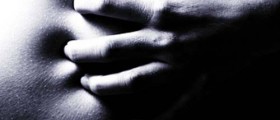
Caffeine in pregnancy
Every person in the world has heard of coffee and knows that it contains caffeine. However, even that is the case there are still some people who are not aware that caffeine is a stimulant. Apart from coffee, caffeine can also be found in various other drinks, foods and even medications. Caffeine is a natural product of lots of different plants and people add it to various foods and drinks due to its flavor. However, most people who need caffeine drink coffee and coffee is considered to be the main source of it. Even though coffee helps people become awake in the morning or have the strength and awareness in the later stages of the day, almost all experts agree that women who are pregnant or trying to become pregnant need not drink more than 200 mg of caffeine in one day. One 12-ounce cup of coffee contains this much caffeine. Certain studies show that consumption of a greater dosage than that one may result in miscarriage and some other fertility problems. Women need to realize that the source of caffeine is not important but the amount of consumed caffeine. This is why women need to pay more attention to what they eat and drink, because nowadays lots of foods and drinks contain caffeine. They need to limit the amount of caffeine they intake during pregnancy.
Foods and drinks that contain caffeine
Apart from coffee, caffeine can also be found in all coffee-flavored products like yogurt and ice cream. Tea is also known to contain caffeine and so are some soft drinks. Caffeine can also be found in chocolate and chocolate products. However, the amount of caffeine in these products is not the same and people need to read the label when they purchase these products.
Medicines that contain caffeine
Certain medicines meant to fight pain, migraines, colds and delay sleep are known to contain caffeine. A person will know how much because the FDA requires that the label says so. Pregnant women should avoid taking any medications before talking to the doctor first. Pregnant women need to know that they are more sensitive to caffeine than other people and that it takes longer for them to get the caffeine out of the system. Caffeine reaches the baby when it passes the placenta and it may harm the baby. Experts are still in conflict when the topic of caffeine and the baby’s growth is considered. Certain studies show that even a small amount of caffeine can decrease the baby’s birth weight. On the other hand, a certain study shows that that happens only when a mother consumes more than 300 mg of caffeine daily.

















Your thoughts on this
Loading...